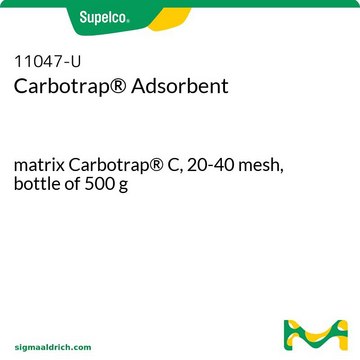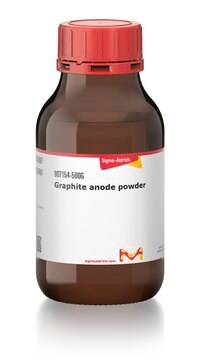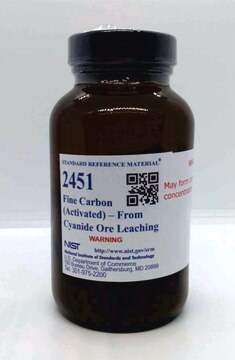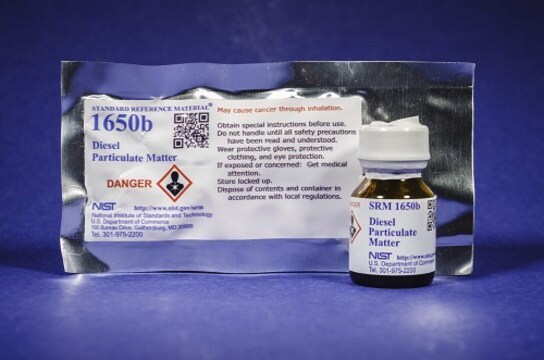About This Item
Recommended Products
form
powder
greener alternative product characteristics
Design for Energy Efficiency
Learn more about the Principles of Green Chemistry.
sustainability
Greener Alternative Product
surface area
>500 m2/g , BET
pore size
0.4-0.7 cm3/g mesoporosity
0-0.25 cm3/g microporosity
bp
4827 °C
mp
3654-3697 °C
application(s)
battery manufacturing
greener alternative category
SMILES string
[C]
InChI
1S/C
InChI key
OKTJSMMVPCPJKN-UHFFFAOYSA-N
Looking for similar products? Visit Product Comparison Guide
General description
Application
Footnote
Legal Information
Storage Class
11 - Combustible Solids
wgk_germany
WGK 3
flash_point_f
Not applicable
flash_point_c
Not applicable
ppe
Eyeshields, Gloves, type N95 (US)
Choose from one of the most recent versions:
Already Own This Product?
Find documentation for the products that you have recently purchased in the Document Library.
Customers Also Viewed
Articles
Our strategy is to synthesize mesoporous carbonaceous materials (“Starbons”) using mesoporous expanded starch as the precursor without the need for a templating agent.
Mesoporous Materials include a range of high surface area porous silicates with applications in gas adsorption, drug delivery, diagnostics and catalysis.
Mesoporous materials are formed by a self-assembly process from combined solutions of sol-gel precursors (e.g., metal alkoxides) and structure-directing amphiphiles, usually block-copolymers or surfactants.
A key challenge for nanomaterial safety assessment is the ability to handle the large number of newly engineered nanomaterials (ENMs), including developing cost-effective methods that can be used for hazard screening.
Our team of scientists has experience in all areas of research including Life Science, Material Science, Chemical Synthesis, Chromatography, Analytical and many others.
Contact Technical Service








